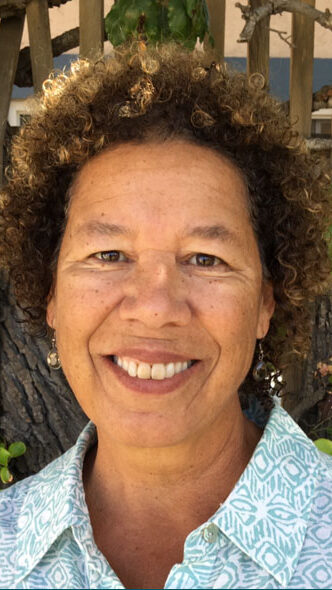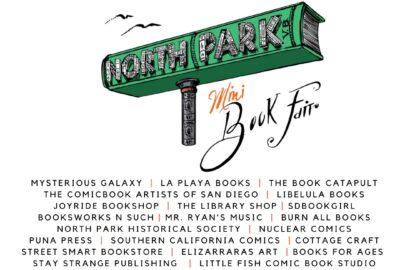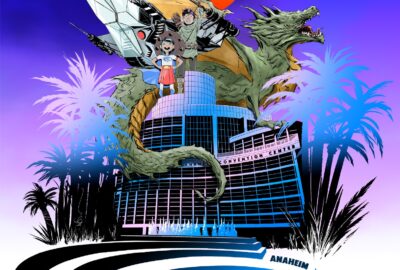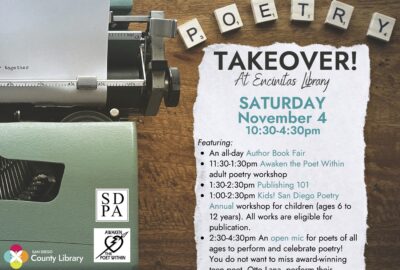Lizzie Wann, Puna Press Live
LifeBeat Follow-Up: Sharon Elise
Welcome to 2022! I’m continuing to share follow-up interviews with some of my former guests on the Puna Press Live show I hosted live on Twitch beginning in 2020. We’re up to episode three (of eight) that was recorded on October 15, 2020. Watch the episode. The first person of this episode we’ll feature is the one and only Sharon Elise. At that time in the pandemic, there had been over 17,000 deaths in California and over 878,000 cases reported. The vaccine wasn’t ready. Sadly, now, those numbers have grown exponentially and many of the same issues from that time are still relevant, including how students are dealing with this reality, and, well, how the fight for so much continues, which Sharon addresses here. This Q&A was conducted by email, and Sharon provided her answers on January 5, 2022.

~~
Lizzie: When we last spoke, the conversation started off with you describing your favorite thing about where you live. You talked about your coastal community and how, despite how it might seem, there were a lot of ideals being represented that you were glad to see. Now 15 months later, has that changed?
Sharon: I still have a deep appreciation of the natural beauty of our southern California coastline. However, too many others share my joy, so during the pandemic it has been hard to share this beauty with people who may be breathing COVID all over me given many people in my community are not prone to mask wearing! At the same time, I have witnessed a great deal of compassion and generosity which can be found in every community.
Next we talked about superpowers. Your preferred one would be that of being a healer. Do you still feel that way? If not, why?
That is still my preference.
In the last of the “lightning round” questions, I asked about favorite smells, and you were delighted with this question, naming coffee with cinnamon and lavender as two favorites, plus the smell of rain. Any more to add to that list?
Still my favorites, but I also love the smell of my grandbabies!
When we got to our more focused questions, we discussed the then-recently passed AB 1460 bill which had recently become a state law requiring incoming college freshmen attending a California State University to complete an ethnic studies course for graduation. It had been a long time coming, and it is but one thing in the continued struggle for equality. How has the implementation been going at your school (Cal State San Marcos)? What else can you tell us about it?
We were fortunate to hire new faculty for Ethnic Studies and for American Indian Studies so that is great. We are advocating for more resources to build these new programs so they can thrive. More importantly, we must push to diversify the faculty and we are hindered because of Prop 209 and our failure to overturn that. Currently the faculty, who are majority white, do not reflect our student body in the CSU which is majority students of color.
Next, I asked you how you and your students were dealing with school during the pandemic. I mean, we’re still in it. What has changed or not changed since Oct 2020? Do you still find that your students are struggling? And you? How are you staying grounded in this ongoing mess?
My students have faced incredible loss, including family members—multiple losses in some cases, and many of them became sick themselves because so many are frontline service workers who did not have the luxury of working from home during the pandemic. The students have faced housing and food insecurity as well. COVID has added to the everyday struggles they already faced, and we have advocated for more support from the CSU and from the legislature to meet their needs—this struggle continues. Housing is out of reach for many students, and even for many faculty, and we hope the State will find a way to provide more affordable housing near our CSUs to help. Meanwhile, as a professor, I practice compassionate pedagogy that encourages students to discuss these issues in class and understand they are not, themselves, the problem; these are structural issues that confound most of them. Moreover, I certainly make accommodations for students who become ill and need flexibility to fulfill their course requirements. I stay grounded because of my union work for the California Faculty Association (CFA) which allows me to be part of the solution, fighting the systemic racism and other forms of social oppression that our students and faculty face, as well as advocating for campuses to be safe spaces for all of us.
I had to ask you about your writing, and you told us that you had been writing poetry to help process the intense feelings that have (re)surfaced with the deaths of George Floyd, Breonna Taylor, and so many others. Is there anything you’ve written you’d want to share or provide a link to? Does writing poetry still provide a respite for you?
I am always writing, but it isn’t always poetry. I have attached a recent poem I shared at a reading in December at the San Diego Central Library [Poetry of Resilience: From Haiku to Free Verse]. (See poem below.) I do journaling as well, and a lot of my writing these days is sociological, writing on anti-Black racism.
Finally, we talked about what brings you joy. Your answer was that the very conversation we were having and knowing there are other women out there who are pushing forward amidst the chaos brought you joy. How are you sustaining and creating joy now?
I feel so fortunate to be surrounded with love and purpose. This gives me great joy—my two new granddaughters Charlotte and Zora and my family, my life partner Willie, my mom, “Diva Dede,” and my amazing (grown) kids, Nigel and Patrice, as well our incredible extended family here in California and in Chicago, Kansas City and Mississippi and St. Vincent. My CFA family of committed activists and our Anti-Racism and Social Justice Transformation project. My co-conspirators on campus who join me in studying and writing and advocating around anti-Black racism.
Is there anything you want to promote or anything else you want to say about where you are right now with everything?
I am not at all minding a life in the house due to COVID since I still get to see my closest loved ones, and I am not madly dashing from here to everywhere. A couple of gatherings before new COVID (the omicron variant) came out made me realize how much I do miss my poetry, union, and campus friends so so much. I hope we are all learning from this time and learning what is most important in life—our loving connections to humanity and our beautiful planet that sustains us and the work of making it all better for all of us.
~~
Thank you for your thoughtful answers and for continuing to do the work, Sharon. Below is the poem she sent to share. Please take the time to read it, and then read it again.
THE YEAR BLOWS LIKE KATRINA
by Sharon Elise
the virus is no equalizer
like water flowing it follows the curves and valleys of social design
gathering, pooling, saturating Black and Brown bodied
bent and withered bodied, already infirm
bodied smug, knowing, self-satisfying
the year blows like Katrina
plagued by twin pandemics
this COVID loss just added to the steady
drip drip drip of time running out
refrigerator trucks of bodies
token to Atlantic traffickers
the deadly cost of racism
white people resented the lock down
but we have always been on lock down
captives shackled and chained
down pressed by Jim Crow
corralled into projects
no way to sanitize the racism
no mask for Blackness
a crime to be free
a crime to run from captivity
a crime to vote
a crime to be out after sunset
a crime to be someplace anytime
to be Black was a crime, still is
ask the mothers of children shot dead in the park
of sons shot dead in the car
of daughters shot dead in the home
of family in lockup
make it a crime to teach race in the school
muzzle us
like captives strapped into iron masks
don’t let their children become aware
my dead didn’t die of COVID.
all my dead this year are Black men,
my uncles, my cousins, my nephew, my friend
their doctors name diseases
hard to pronounce, harder to spell
but I will tell you
they died of heartbreak,
these men who punctuate every sentence,
tall tale or sad saga, with a chuckle
down pressing disappointment
the daily struggle, the daily rejections
reflected in the splintered heart
they are not bones in the ground
not ashes and dust
they are our connection to the long line of us
Sankofa forever, past is now and future sewn
making more family, more friendship, more love.








